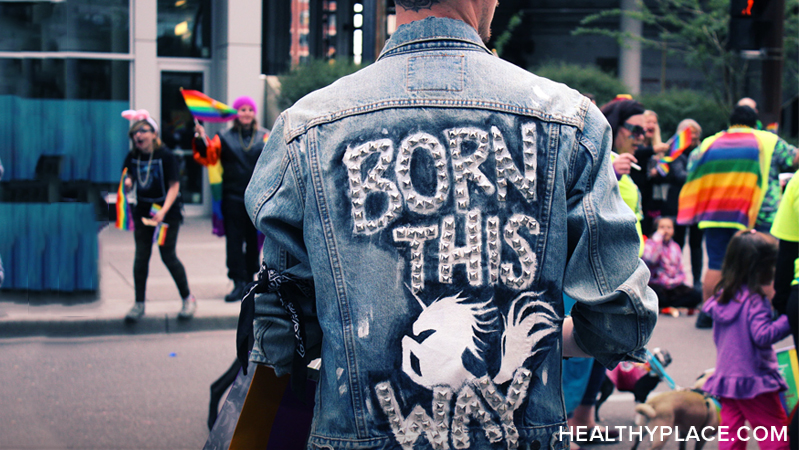Do Identity Labels Help or Hurt Us?

Recently, I have been thinking a lot about identity labels. More specifically, I've been thinking about whether identity labels help or hurt us. In today's post, I will look at the ways that identity labels support us and, at times, the ways they might hinder us.
Identity is an important topic, and we can use labels to describe it in terms of race, ethnicity, gender, sexual orientation, relationship style, and more. Today, I will mostly focus on sexual orientation and gender labels, although my words can apply to a variety of identity labels.
3 Ways Identity Labels Can Help Us
For starters, I will look at three ways identity labels can help us.
- Having a label can help us better understand ourselves. At a basic level, utilizing identity labels like bisexual, lesbian, heterosexual, pansexual, etc., can help us to understand ourselves better. Especially if we're new to discovering aspects of our queerness and identity, like being gay or transgender, it can feel really exciting to utilize a new label, which leads me to my next point. On a very practical level, having an identity label can help us with things like dating because we better know who we are and what we want and need with our partner(s).
- Having a label can give us a sense of pride. Realizing that you identify with a particular label can be so exciting, as I said above. It also opens the door to being a part of a new community (which I'll talk about in my next point). I experience a lot of pride in identifying with the label of transgender. It makes me feel a sense of pride about who I am and also the broader community I am a part of.
- Having a label can give us a sense of community. Once you have an identity label, this opens the door to finding other people who identify similarly. There are tons of events out there intended for people of specific identities, like transgender, lesbian, gay, etc. For me, I have found a lot of community with other transgender folks. I have struggled more to find community with other bisexual folks, as we are a more marginalized identity, but I still get a lot out of it when I find other people who identify similarly to me.
Can Identity Labels Hurt Us?
Part of why I made this post is that I've started to feel held back by my identity labels as of late. My understanding of my gender and sexuality has begun to shift, and the labels I've long identified with just don't feel as relevant. I've felt more boxed in by identity labels than supported by them. In the video below, I share the flip side of identity labels and the ways these labels can hinder us.
Identity Labels Can Help and Hurt
To wrap up, I'll share a personal example of how my identity labels are shifting over time. I've felt attached to the sexuality label "bisexual," but over time, I've realized I'm just not that attracted to men anymore, and this label hasn't been fitting for me. I was attracted to men for a really long time, so it's confusing, but I mostly prefer women at this stage of my life. It's felt a bit scary to let go of the bisexual label, as I've been a fierce advocate for bisexual visibility.
Now, I'm leaning into what it means to start letting go of the label bisexual and possibly identify with labels that mostly acknowledge my attraction to women. As I've written about in other posts here, I like the label "lesbian" when I'm in my feminine self. When I'm more in my masculine gender identity, I've been toying around with the label "heteroflexible," meaning mostly heterosexual with some flexibility. Mostly, though, I'm trying not to get too caught up in new labels and just to go where my attractions lead me. While identity labels can be helpful, they are ultimately not the be-all and end-all of identity, and they do not define everything about who we are. Well, at least for me, they don't.
APA Reference
Lyons, D.
(2023, November 29). Do Identity Labels Help or Hurt Us? , HealthyPlace. Retrieved
on 2026, January 7 from https://www.healthyplace.com/blogs/thelifelgbt/2023/11/do-identity-labels-help-or-hurt-us
